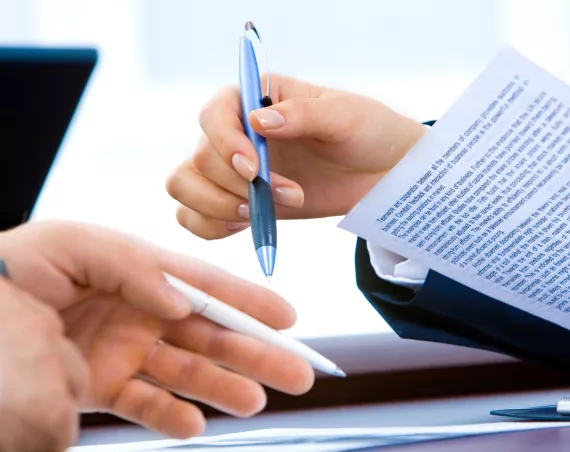
Talking about money
Powered by RedCircle
Hello and welcome to Learn English Vocabulary. My name is Jack and I’m making this podcast for you to learn or revise English vocabulary. You can find a transcript of this podcast on LearnEnglishVocabulary.co.uk. There’s a page for this podcast with the transcript, an activity and a task for you to do in the comments section.
Introduction
Today, I want to talk about money. Well, I want to talk about 10 verbs that you can use to talk about money. You see, lots of conversations in English are about business and money so this vocabulary is very important and generally taught in B1 or Intermediate level classrooms.
As I said, I’m going to look at 10 verbs.
I’m going to try to present these through a short dialogue to try to demonstrate the verbs in a natural-sounding context. Listen to the dialogue and try to hear how the following verbs are used: Afford, borrow, charge, cost, earn, lend, owe, pay, save, spend.
Dialogue
Jack: I really want to buy a new car, but it’s no good. I can’t afford it.
Mike: But you’ve got a great job. You must earn a decent salary.
Jack: Yeah, but I’m still paying off my student debts and I’ve got a massive mortgage.
Mike: How much do you owe for your student loan? You must have paid off most of it by now.
Jack: Don’t forget the fees went up before I started uni. They charged me a lot more than you had to pay.
Mike: Yeah, yeah. How much does the car cost anyway?
Jack: It’s not too much. Well, I can’t afford to buy it outright, but there’s a good finance deal. All I need is the deposit.
Mike: How much is it?
Jack: Five thousand.
Mike: Wow. That’s quite a lot.
Jack: Yeah. I’ve been saving for a bit and I can afford to spend four thousand.
Mike: So you’re a thousand short.
Jack: Yeah.
Mike: Would you like me to lend you the difference?
Jack: No, I couldn’t. I don’t like borrowing money off friends.
Mike: You’ve borrowed money off me before.
Jack: Yeah, but only a small amount that I know I could pay back right away.
Mike: If you need a new car and want to borrow the money, I’ll be happy to lend it to you.
Jack: That’s very kind of you, but I’ll keep saving … for now.
Afford
I’m going to go through the verbs in the order that they occurred in the dialogue. The first verb I used was to afford. I said I can’t afford it. This is, unfortunately, the most common use of the verb to afford. You see it means to have enough money to buy something. If you have enough money to buy something, then you can afford it. If you can’t afford it, then you don’t have enough money. The stress is on the second syllable so the af at the beginning is weak and you say afford. You can hear some neat linking in the phrase I can’t afford it … t’afford it. I can’t afford it.

Earn
The second verb I used was to earn. I said you must earn a good salary. When you receive money for work, you earn the money. You can earn wages or a salary. Aha – bonus vocabulary. When you work, you can either earn a salary or wages. A salary is a fixed monthly amount. Usually, it doesn’t change if you work longer or shorter hours. Wages, on the other hand, are based on the hours or days you work. If you are paid by the hour, then you are paid a wage. Normally, if you work in a shop or a restaurant, you are paid for the time you work. Your payslip might be different each month because of the number of hours or days you have worked. If you are salaried, you earn the same amount every month. Earn is easy to pronounce, but it doesn’t look how it sounds. It’s written e – a – r – n so be careful when you see it in a text.
Pay
The third verb I used was to pay. To pay means to give someone money for goods or services. So if you eat a meal in a restaurant, you have to pay for it. In the dialogue, I actually used a phrasal verb. I said I was paying off a student loan. If you take a loan from a bank, you have to pay the bank back. When you do this, you are paying off the loan. When you have paid back everything, you have paid off the loan.
After pay or pay off, I used the verb to owe. I asked: How much do you owe? To owe money means you have to give someone, usually a bank, money because you took a loan. You owe somebody an amount of money. I owe the bank £2,000, for example. Or you can owe an amount of money to someone. I owe £2,000 to the bank.
Charge
The next verb I used was to charge. This means to demand an amount of money for something, usually for a service. You could ask a hairdresser how much do you charge for a hair cut. In the UK, universities charge tuition fees. Usually, organisations describe the money that they charge as fees. So, a golf club might charge a registration fee. If you go to a language school, you could ask the school what the course fees are. If you have a private teacher, you would ask what they charge.
Cost
Next, I used the verb to cost. We say that something costs an amount of money. This is a bit strange because the object for sale doesn’t do anything with the money. It’s really what the seller charges, but all the same, we say things cost money. That book costs £12.99.
Save
The next verb I used was to save. I said: I’ve been saving for a bit. To save money means to avoid spending money so that you can collect enough money to do something that you couldn’t afford without saving. I’m really not very good at saving money.
Spend
The next verb was to spend. This means the same as pay. The questions how much did you pay and how much did you spend are almost exactly the same. I think that the only difference is that you pay money for something. You can spend money on something, but with the verb spend, the focus is on the money and not the things you bought. So I know that this is a stereotype, but my wife enjoys shopping. However, she is careful and doesn’t enjoy spending money. So one time when we were staying in Manchester because I was working, I got back to the hotel and she had a massive pile of shopping bags and I must have looked a bit distressed and she said don’t worry, I only spent £30. I can’t remember exactly, but you get the idea, I hope.

Lend and borrow
The last two verbs are partners. They are to lend and to borrow. If you lend someone some money, you give them money and you expect them to pay you the money back. It is a loan, not a gift. If you borrow some money, then you take some money from someone and they expect you to pay it back. Again, it’s a loan and not a gift. The following questions mean the same thing. Could you lend me £10? Could I borrow £10? I have heard learners make mistakes and say borrow me so be careful.
So, there you have ten verbs that you can use to talk about money. I suggest that you listen to the dialogue again to hear the language in context.
If you have enjoyed this podcast, please leave me a comment or a review and don’t forget that you can read the transcript for this podcast and complete some language activities on LearnEnglishVocabulary.co.uk.
Thanks for listening.
Test yourself
Your turn
- What would you like to buy if you could afford it?
- Are you saving money to buy anything?
- Have you ever spent too much money on anything?





3 Comments
Nicky
Hello teacher Jack, thanks a million for tis lesson! It was very helpful to understand the differences between this verbs 😊
And here I go with the questions
What would you like to buy if you could afford it?
I would like to buy a boat if I could afford it
Are you saving money to buy anything?
I am saving money to go for a vacation next year
Have you ever spent too much money on anything?
One day, I spend too much money on clothes that I almost didn’t use,. But as many people say: “live and learn”
Jack
Hello Nicky
It’s great to hear from you. You would like to buy a boat? What type of boat would you buy? In the UK, we have lots of canals and people have canal boats which are barges you can live on. I have always liked the idea of living on a barge.
Thanks
Jack
Enrique
Hi Jack!
I’m really thankful because due to your podscarts I’m learning and improving a lot. I’m usually listening them while I’m doing housework or at work.
Seriously, thanks so much.
And here I go with the questions:
1.- What would you like to buy if you could afford it?
I would like to have a house on the countryside because I really like the peace when I arrive home. With a big garden to do sunbathing in spring or summer.
2.- Are you saving money to buy anything?
Actually, I’m saving money not to buy something, but to pay a pilot license. I would like to be a pilot so I really need a good English level. So I’m working to save money because I can’t afford it rigth now!
3.- Have you ever spent too much money on anything?
Yes, I have! I love the music too and I play the trumpet, so five or six years ago I bougth one a little expensive but I’m sure it will walk with me all my life!
Thanks again for your help. Since I know you, I’m improving a lot my listening comprehension and increasing my vocabulary!